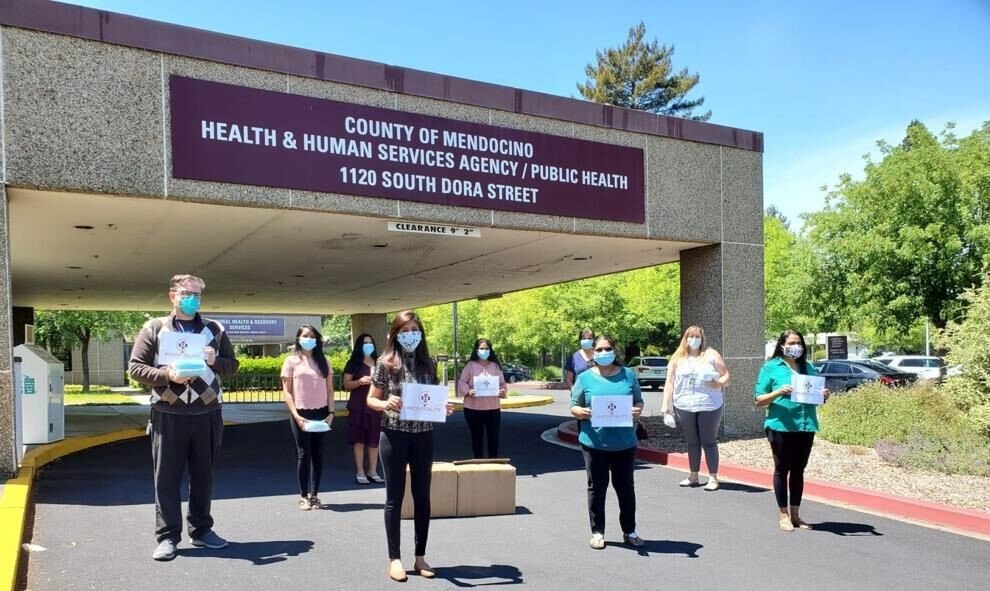
Department of Homeland Security to Supplement H-2B Cap with Additional Visas in First Half of Fiscal Year
Indian American hoteliers and moteliers will be able to take advantage of the new H-2B visa rule. Above: A group of young second- and third-generation Indian American and Asian-American hoteliers set up #HospitalityStrong, a grassroots organization designed to leverage resources in the hotel industry to provide targeted assistance to communities in response to the coronavirus crisis. (India-West provided photo)
India-West Staff Reporter
The Department of Homeland Security and the Department of Labor announced Dec. 20 the forthcoming publication of a joint temporary final rule to make available an additional 20,000 H-2B temporary nonagricultural worker visas for fiscal year 2022. These visas will be set aside for U.S. employers seeking to employ additional workers on or before March 31, 2022, said a press release.
This supplemental cap marks the first time that DHS is making additional H-2B visas available in the first half of the fiscal year, it noted. Earlier this year, USCIS received enough petitions for returning workers to reach the additional 22,000 H-2B visas made available under the FY 2021 H-2B supplemental visa temporary final rule.
The supplemental H-2B visa allocation comprises 13,500 visas available to returning workers who received an H-2B visa, or were otherwise granted H-2B status, during one of the last three fiscal years. The remaining 6,500 visas, which are exempt from the returning worker requirement, are reserved for nationals of Haiti and the Northern Triangle countries of Honduras, Guatemala, and El Salvador.
“At a time of record job growth, additional H-2B visas will help to fuel our Nation’s historic economic recovery,” said DHS Secretary Alejandro Mayorkas. “DHS is taking action to protect American businesses and create opportunities that will expand lawful pathways to the United States for workers from the Northern Triangle countries and Haiti. In the coming months, DHS will seek to implement policies that will make the H-2B program even more responsive to the needs of our economy, while protecting the rights of both U.S. and noncitizen workers.”
DHS intends to issue a separate notice of proposed rulemaking that will modernize and reform the H-2B program, the release said. The proposed rule will incorporate program efficiencies and protect against the exploitation of H-2B workers, it added.
The H-2B program permits employers to temporarily hire noncitizens to perform nonagricultural labor or services in the United States, which would also apply to Indian American hoteliers and moteliers. The employment must be of a temporary nature for a limited period of time, such as a one-time occurrence, seasonal need, or intermittent need. Employers seeking H-2B workers must take a series of steps to test the U.S. labor market. They must also certify in their petitions that there are not enough U.S. workers who are able, willing, qualified, and available to do the temporary work for which they seek a prospective foreign worker. In addition, they must certify that employing H-2B workers will not adversely affect the wages and working conditions of similarly employed U.S. workers.
In a statement emailed to India-West, American Hotel & Lodging Association president and CEO Chip Rogers applauded the move, saying in a statement:
“Today’s announcement is welcome news, as the lodging industry and many others continue to grapple with the tightest labor market in decades. Filling open jobs is the hotel industry’s top priority, and the H-2B visa program helps hotels and other industries with strong seasonal business and workforce needs to do just that. While our members always look first to the U.S. workforce to fill critical job functions during peak seasons, the H-2B program serves as an important and necessary tool for these small businesses to bridge the employment gap.”
The American Hotel & Lodging Association is a national association representing all segments of the U.S. lodging industry. Headquartered in Washington, D.C., AHLA focuses on strategic advocacy, communications support and workforce development programs to move the industry forward.




